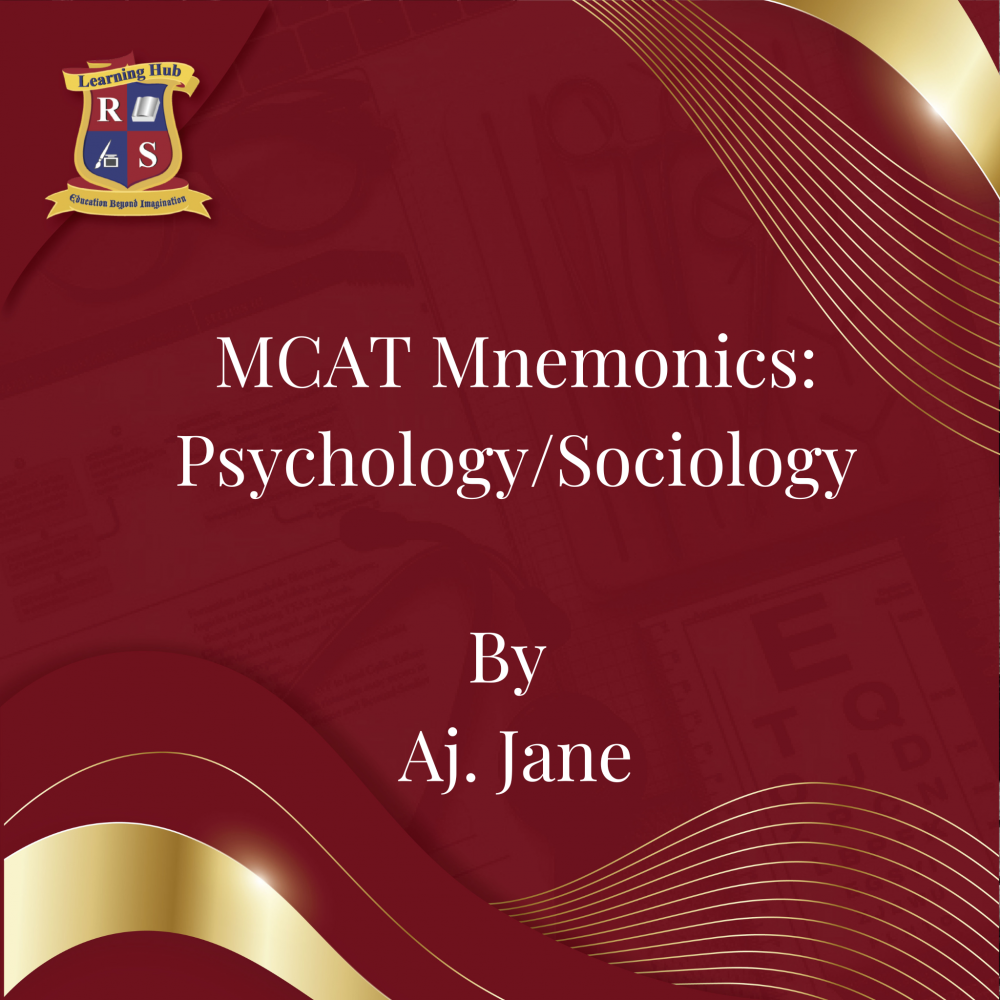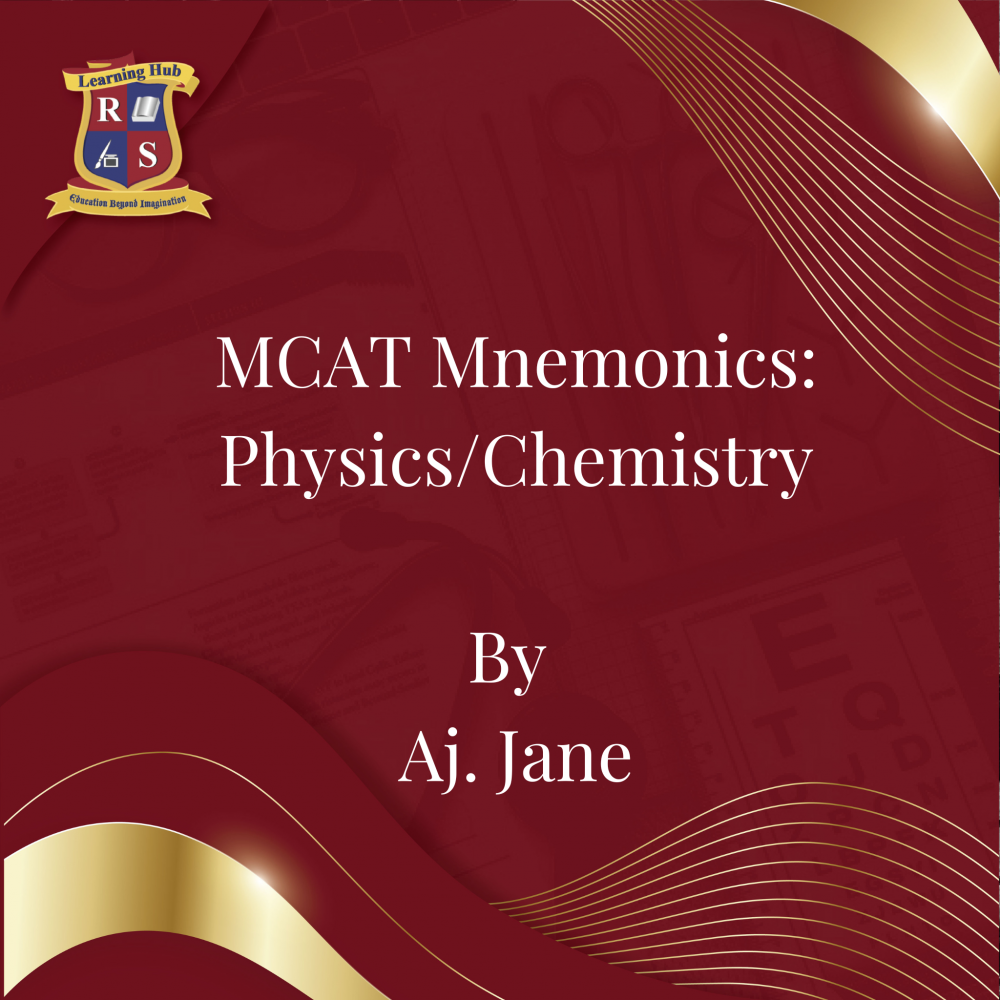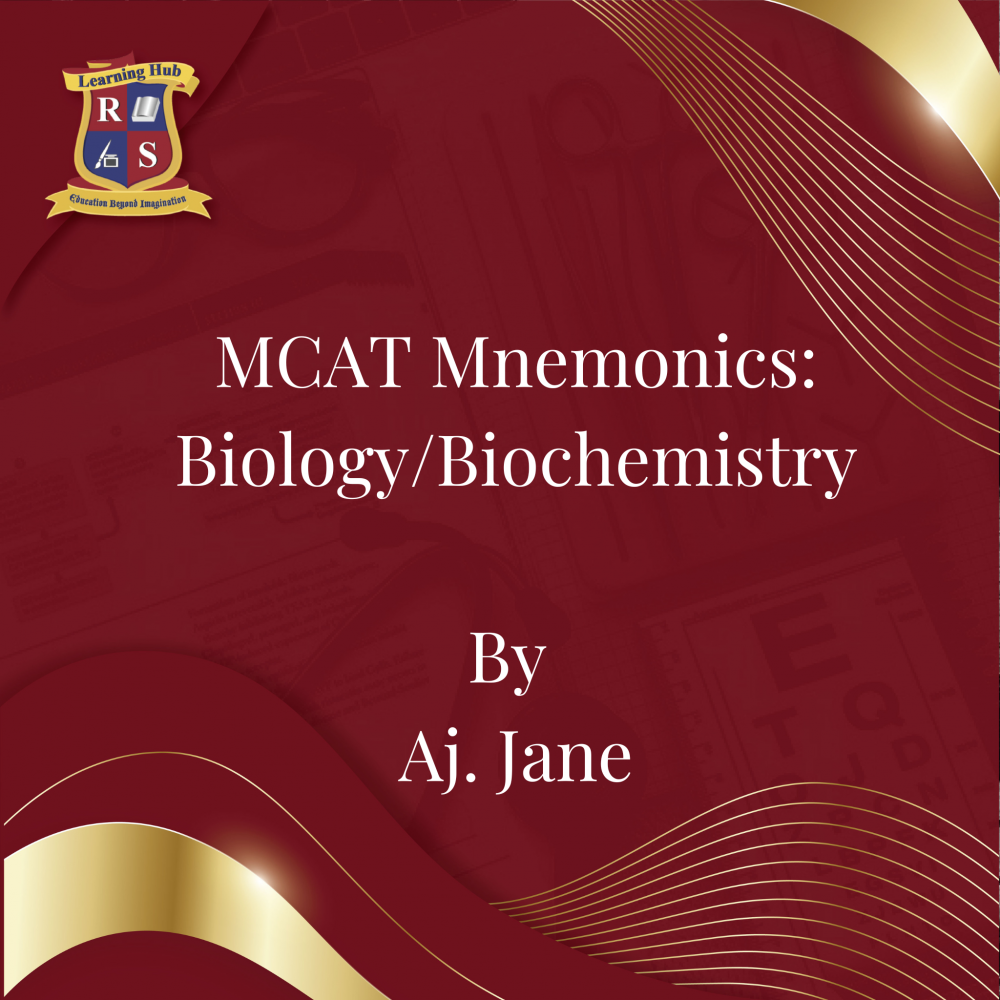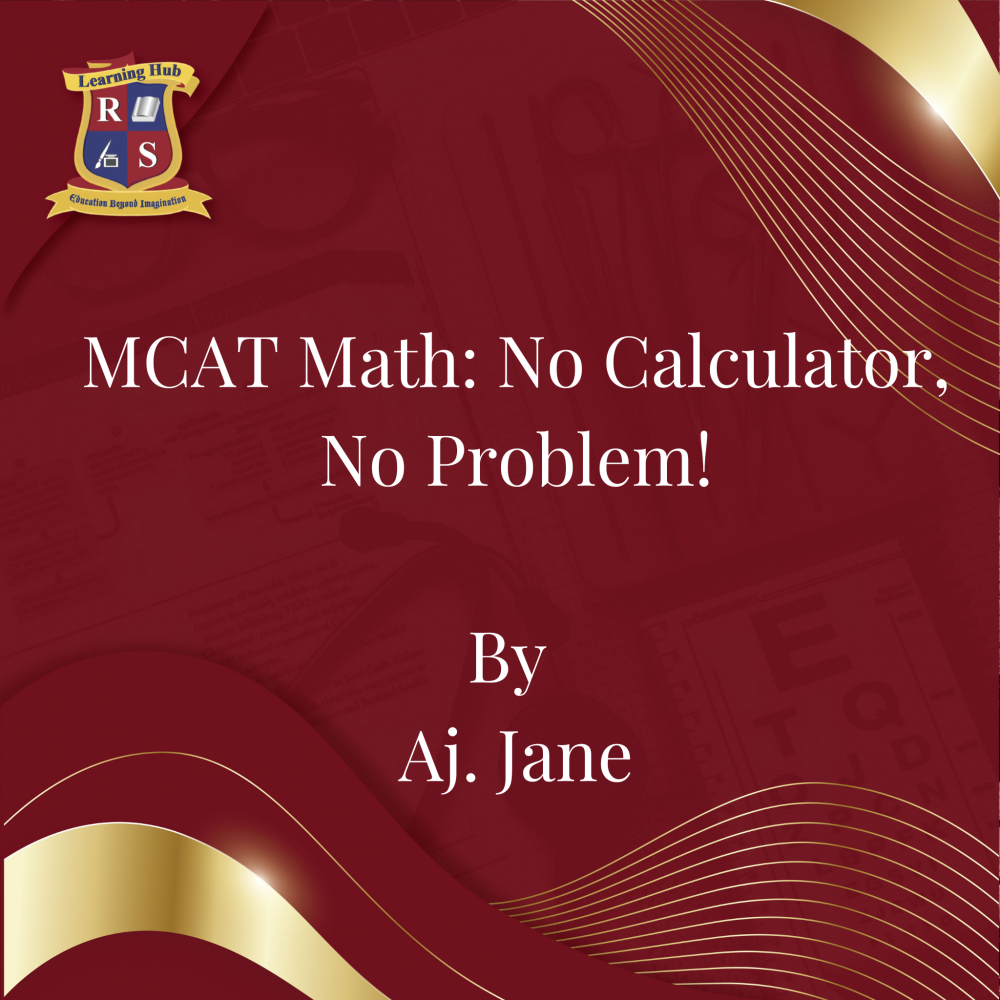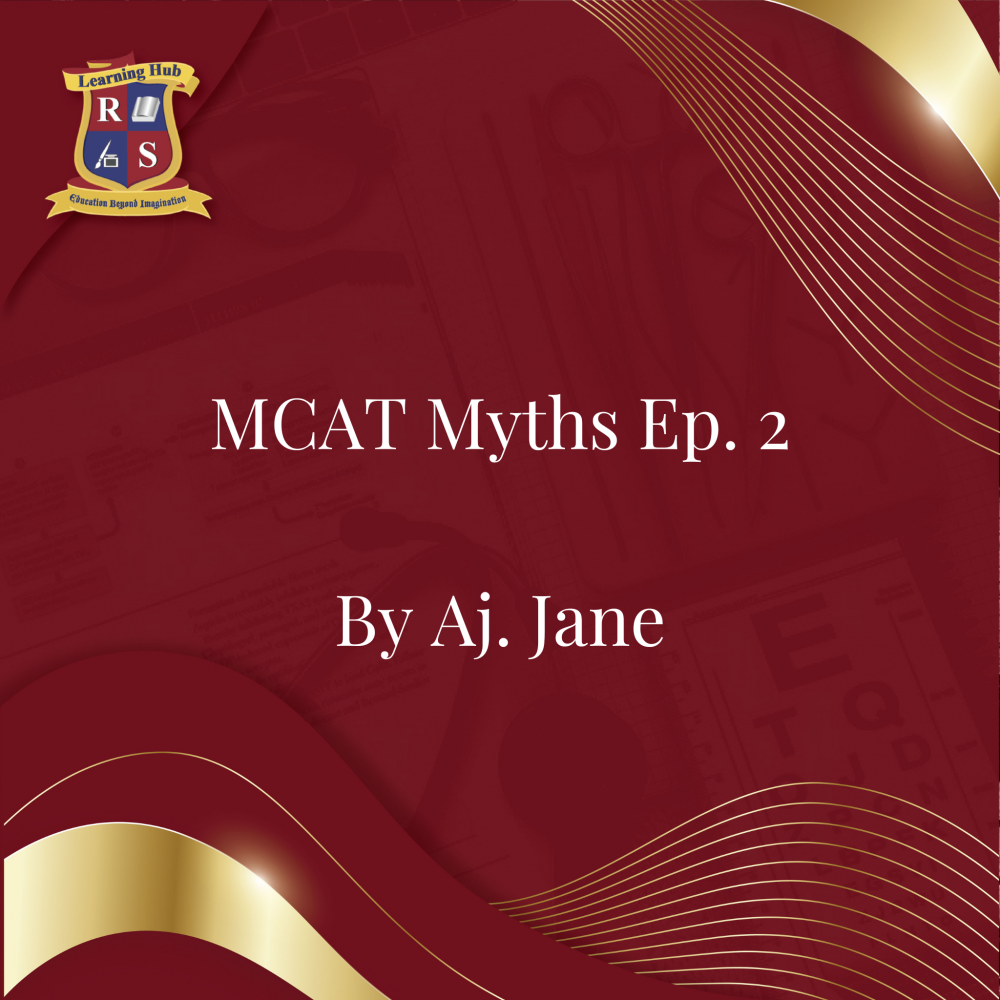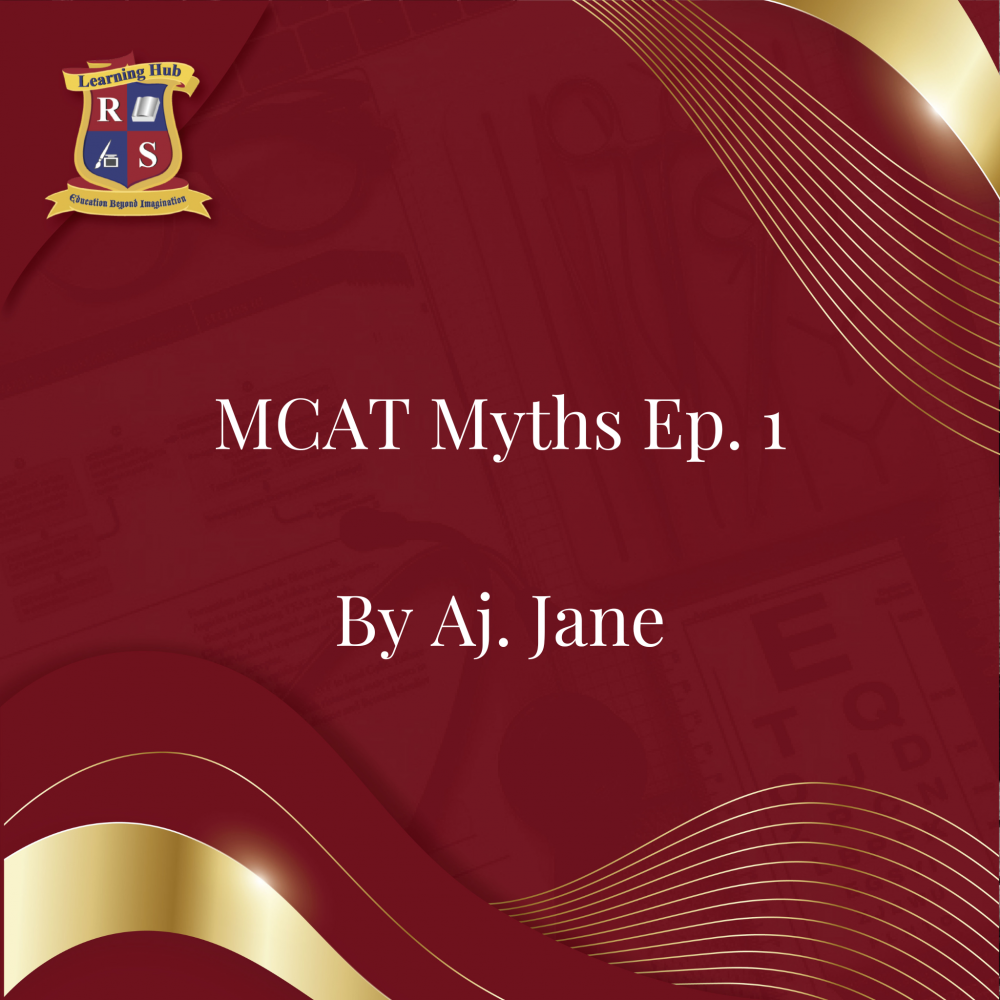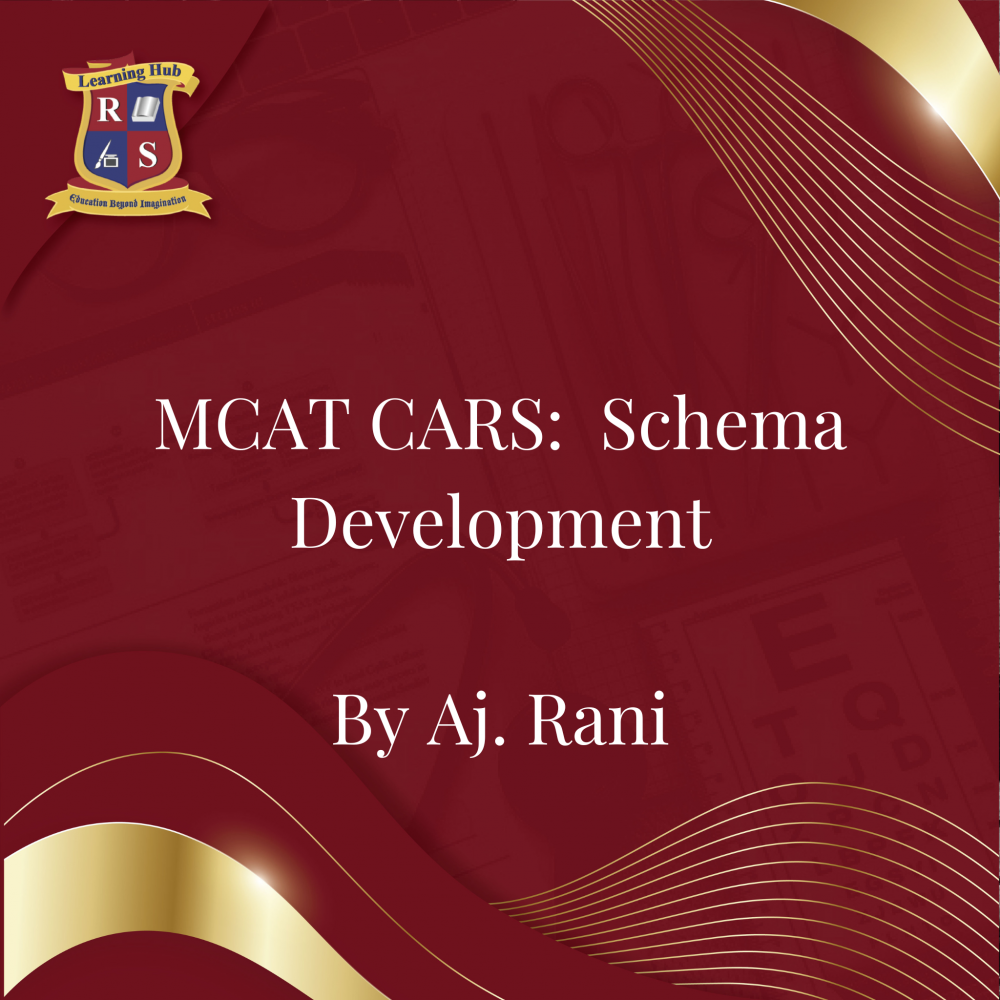For our mnemonics series, we move on to psychology.
- Piaget’s stages of cognitive development
o Some People Can Fly: Sensorimotor, Pre-operational, Concrete operational, Formal operational - Theories of personalities
o Phones have to be switched off = Psychoanalytic, humanistic, trait behaviorism, social/cognitive - The McCrae and Costa Five-Factor Model of personality traits: OCEAN = Openness to experience, Conscientiousness, Extroversion, Agreeableness, Neuroticism
- Erikson’s Psychosocial Development theory contains 8 stages of development. You can use the phrase: Trust the auto insurance industry; identify with intimate geniuses with integrity
o Trust vs Mistrust
o Autonomy vs Shame and doubt
o Initiative vs Guilt
o Industry vs Inferiority
o Identity vs Role confusion
o Intimacy vs Isolation
o Generativity vs Stagnation
o Integrity vs Despair - Universal emotions: SAD FiSH = Surprise, Anger, Disgust, Fear, Sadness, Happiness
- Types of social norms: Peter saves people in despair = Prospective, Subjective, Prescriptive, Injunctive, Descriptive
- Factors of globalization: Every individual has talent and full potential = Economy, Industrial organization, Historical, Technology , Financial, Politics
So this blog concludes the mnemonics series. Remember that you can always create your own mnemonics, but more importantly, you must learn to integrate what you know and apply that to answer the questions correctly. Let’s get creative!!!
Jane
